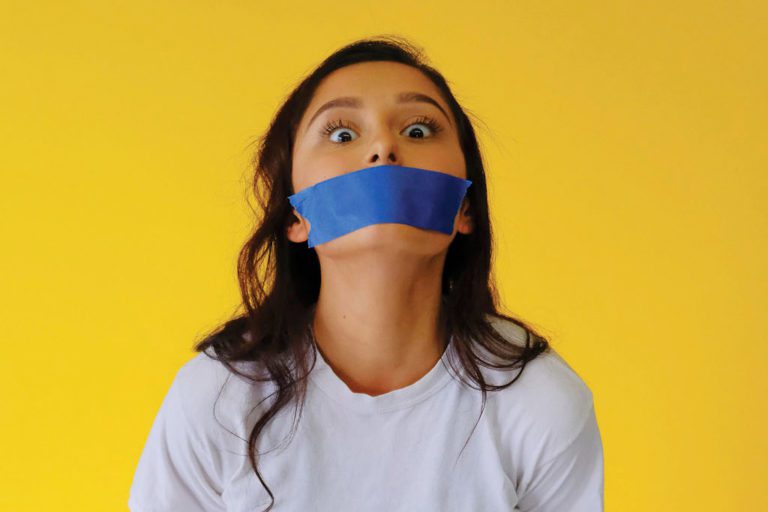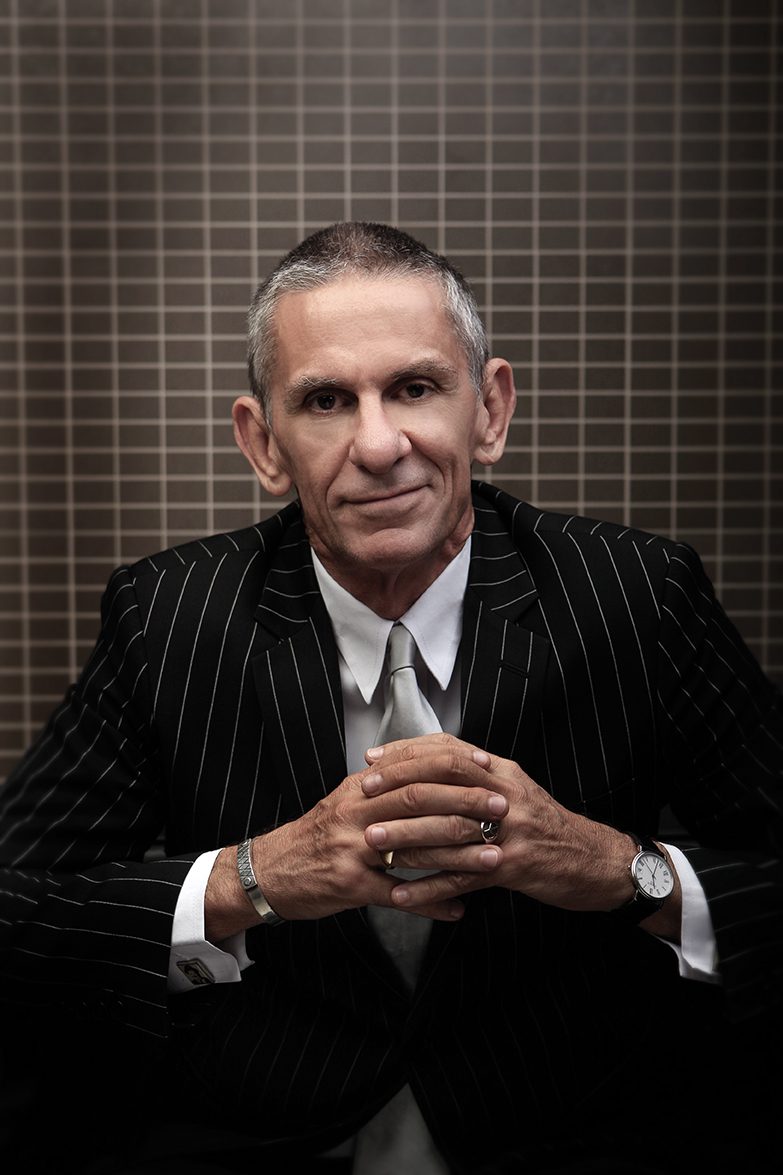LEGAL
The Harm Principle

WORDS: Chris Nyst PHOTOGRAPHY Brian Wangenheim / Unsplash
Freedom of speech is a two-way street, with the rights of every citizen always subject to the corresponding rights of those around them.
THE 18th-century French philosopher Voltaire was a celebrated champion of free speech. When the writings of one of his contemporaries were bitterly condemned by Church and state authorities as atheistic and heretical, and publicly incinerated by the Paris hangman, Voltaire reportedly responded with the approach: “I may disapprove of what you say, but I will defend to the death your right to say it.”
What would Voltaire have made of thought control in the digital world of the 21st century?

Lawyer Chris Nyst Portrait – Brian Usher – www.usherusher.com
Last February, the powerful social media platform, Facebook, delivered an edict officially censoring any of its 2.6 billion users from sharing any post suggesting the Covid-19 virus might have been man-made or manufactured. At the time, many US political figures were convinced claims the contagion accidentally escaped from a laboratory at the Wuhan Institute of Virology, where Chinese Government scientists were reportedly studying how viruses might be made more infectious and dangerous, were no more than a baseless conspiracy theory.
As it happened, Facebook supremo Mark Zuckerberg agreed. So he issued an executive order effectively banning his company’s billions of users from talking about it on its social media platform.
Then, in late May this year, the company changed its tune after new reports emerged that, in November 2019, three scientists from the Wuhan Institute were hospitalised with symptoms very similar to those experienced by Covid-19 patients, and virologist Robert Redfield, who led the US Centre for Disease Control and Prevention when the pandemic broke, publicly acknowledged he believed it was ‘most likely’ the pathogen escaped from a laboratory in Wuhan.
Facebook immediately lifted the ban, its US spokesman issuing a statement assuring the company’s faithful followers “We’re continuing to work with health experts to keep pace with the evolving nature of the pandemic and regularly update our policies as new facts and trends emerge.” But many Facebook users were left asking themselves the question, Meanwhile, what the heck just happened to our freedom of speech?
Perhaps not surprisingly, America’s controversial former president Donald Trump indignantly asked the same question months earlier when he was banned from Facebook, Instagram and Twitter in the wake of his supporters’ assault on the US Capitol building on January 6. No sooner was Trump shut down by the social media giants than he promptly launched a new website, on which he defiantly trumpeted (pardon the pun): “What Facebook, Twitter, and Google have done is a total disgrace.” The former president protested his freedom of speech had been trashed by “radical left lunatics … afraid of the truth”.
Months later, Facebook’s own Oversight Board criticised the indefinite nature of the gag placed on Trump as “indeterminate and standardless”. But it left the ban in place nonetheless, limply giving Facebook six months to respond by being “more transparent about how it assesses these things”.
Of course, the debate about freedom of speech is currently raging just as fiercely right here in Australia, with the former Rugby League and Rugby Union champion and dual international, Israel Folau, protesting what he claims is an effective ban from football following his highly controversial comments about homosexuality and same-sex marriage. In 2019, despite scoring more tries than any other player in Super Rugby history, Folau was sacked by Rugby Australia for expressing views Australian Prime Minister Scott Morrison described as “appallingly insensitive”.
But Article 19 of the 1948 United Nations Universal Declaration of Human Rights clearly states that “everyone has the right to freedom of opinion and expression”, including “freedom to hold opinions without interference, and to seek, receive and impart information and ideas through any media and regardless of frontiers”. So, does that mean, no matter how appalling or insensitive your views may be, you have an absolute, inalienable right to free speech?
Well, no, not really.
Firstly, the Australian Constitution does not expressly acknowledge a right to free speech, and though some jurists have sought to argue Australia’s 1948 vote in favour of the adoption of the UN Declaration of Human Rights imported an implied right to free speech into our Common Law, there is no inalienable constitutional guarantee of any such right in Australia.
Secondly, it has long been recognised that, in any event, all individual rights are limited by the operation of what is known as ‘the harm principle’. That principle contemplates that freedom is a two-way street, and the rights of every citizen are always subject to the corresponding rights of those around them. The great Benjamin Franklin insisted that free speech was every man’s right only insofar as “by it, he does not hurt or control the right of another”, and the French Revolutionaries’ 1789 Declaration of the Rights of Man and of the Citizen explicitly noted that: “Liberty consists in the freedom to do everything which injures no one else.”
It is, of course, a very important – and most would say utterly sensible – constraint on the right to openly express one’s views and beliefs. We are free to publish our thoughts and ideas, but not to wantonly cause undue damage or hurt to others.
The role of giving effect to the crucial qualification implicit in the harm principle rests with each individual legislature, and in most legal systems – including our own – freedom of speech is limited accordingly by laws regulating things such as intellectual property, defamation, pornography, discrimination and vilification. In many cases, such laws expose offending parties not only to civil suit but also to criminal prosecution.
So next time you’re about to say some nasty thing about someone or tap it out on your keyboard, maybe you should first take a second to think about the harm principle. It may give you cause to pause, curb your enthusiasm, and avoid a whole lot of hurt for both you and your fellow citizen.










